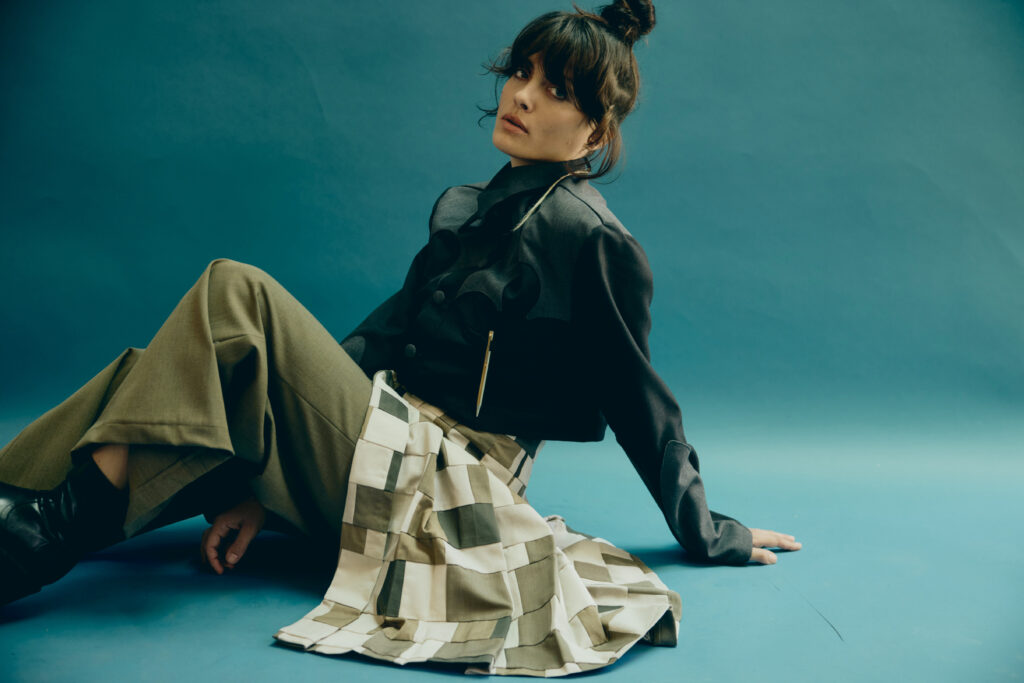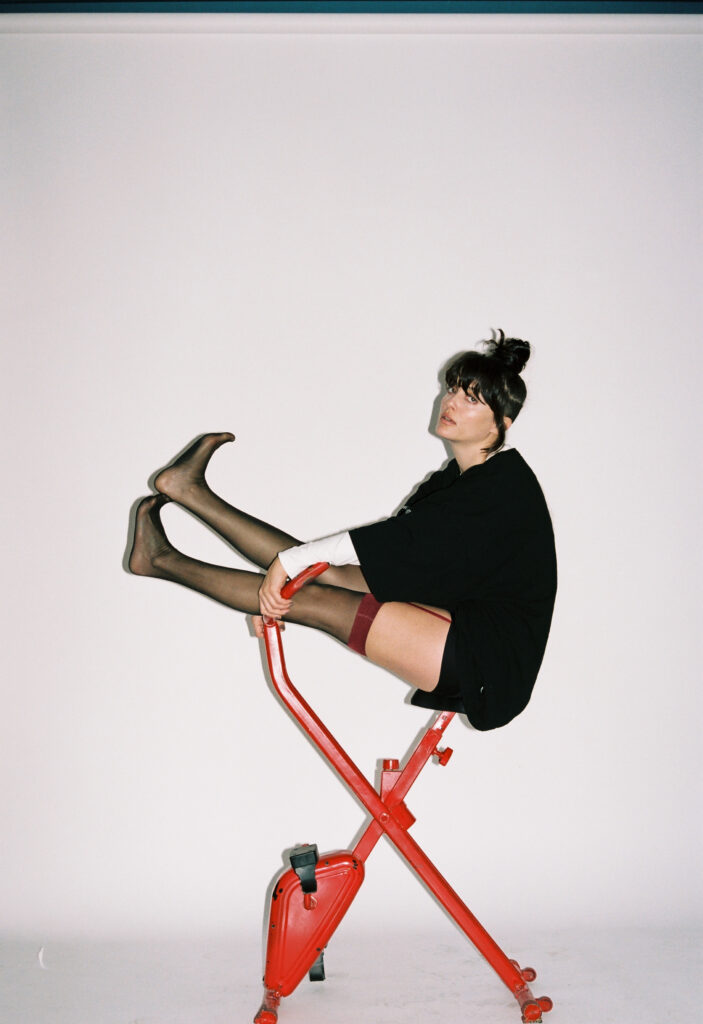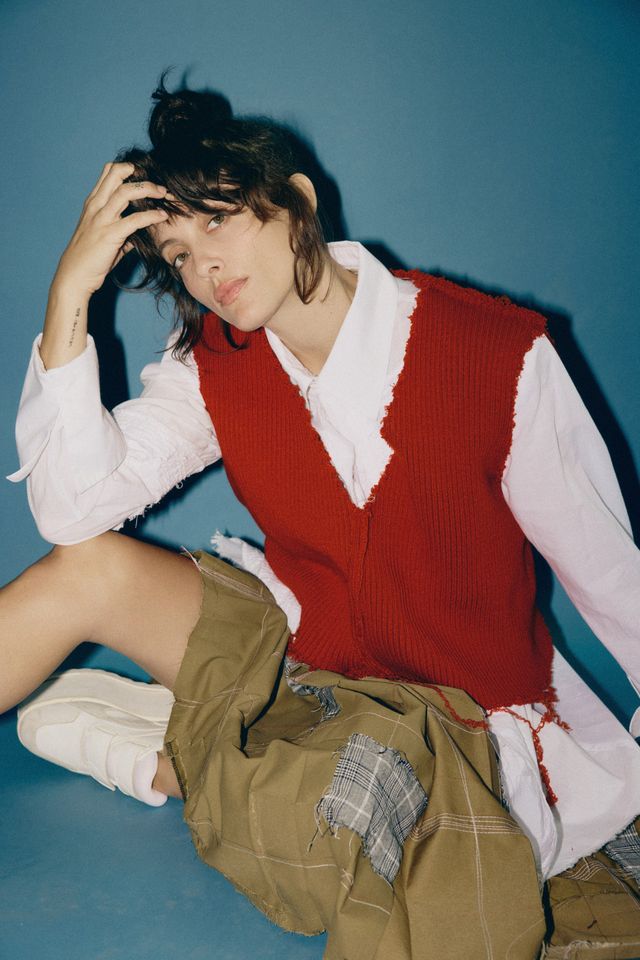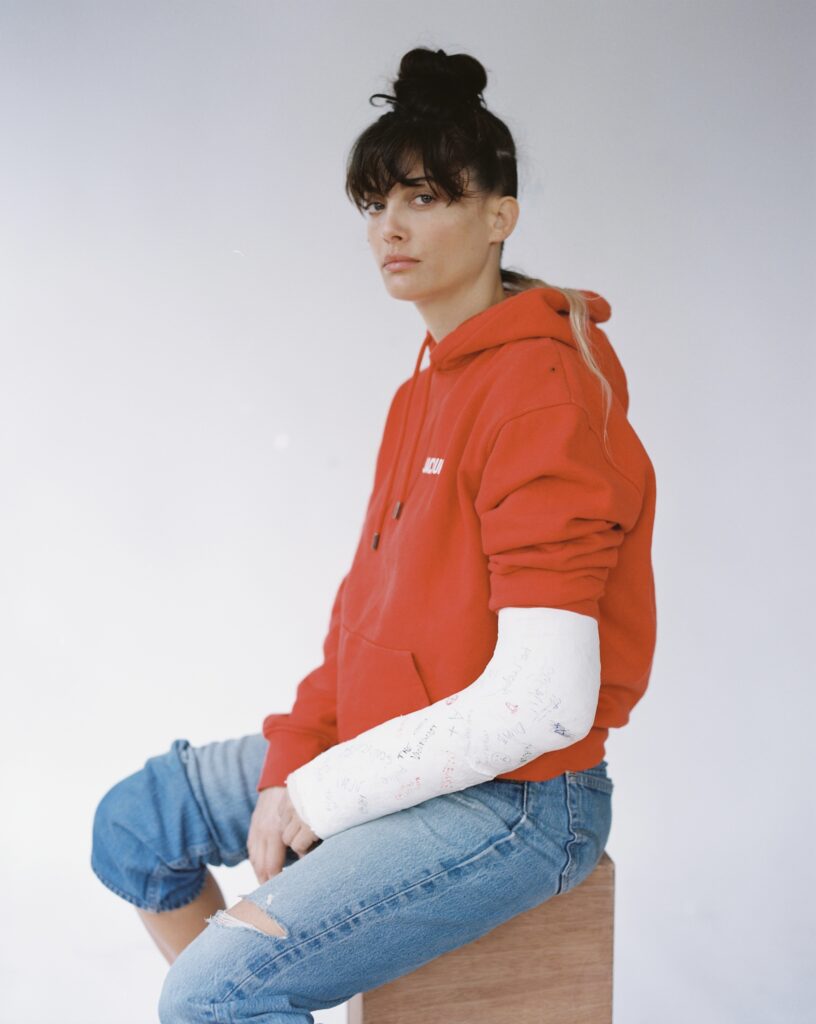
Noga Erez, an Israeli alt-pop singer, rapper, and producer, has gained international recognition for her cutting-edge sound and sharp social commentary. Her latest album, The Vandalist (2024), released under Neon Gold/Atlantic Records, continues her trend of satirical yet deeply personal music. The album features singles like “Vandalist,” “PC People,” and “SAD GENERATION, HAPPY PICTURES,” and explores themes of digital life and societal behaviors with a mix of biting wit and confessional tone.
Known for her dynamic collaborations with longtime partner Ori Rousso, Erez incorporates multicultural textures into her work. Her “Against The Machine (Live)” series strips her typically electronic sound to create organic, acoustic performances. Her bold creativity and genre-defying approach make her a standout voice in modern music.

THE VANDALIST channels a lot of raw, passionate energy about today’s world. What specific experiences or moments inspired the themes on this album?
It took almost four years for us to finish THE VANDALIST, a period that for me, is marked by a world of complete chaos. The album is a reflection of how this turmoil affects us as individuals — myself and Ori (my partner), but also us as society. It’s a personal exploration of life’s struggles and the search for meaning in a chaotic world.
The album’s production is described as intricate and multi-cultural. Can you walk us through some of the different sounds or cultural influences that made their way into this record?
I’ve always been drawn to diverse sounds and cultures.
For THE VANDALIST, we just went fully free and went with whatever we wanted to explore. We sampled a bunch of cool records, and collaborated with artists from different backgrounds. Some Jewish and Israeli culture obviously found its way in, but also Latin and Indian.
For a boundary-pushing artist like yourself, how has THE VANDALIST allowed you to explore new creative ground compared to your previous works?
With each album, I try to push the boundaries of my artistry. THE VANDALIST allowed us to explore darker, more experimental territory. I think the best way to sum it up would be to say that I let myself embrace imperfection. We also embraced a playful approach to the recording process, allowing ourselves to make mistakes and experiment freely. We brought the humor that already exists in the studio sessions into the recording, and generally let studio experience bleed into the recording, like the making of the art and the art have no boundaries between them. This relaxed atmosphere really helped me to let go of perfectionism, and capture a new vibe.
Can you tell us more about the track “AYAYAY” featuring Dillom? How did that collaboration come about, and what unique elements did he bring to the song?
AYAYAY was a beat that we had for a long time and we were kinda shy about using. Because it’s paying tribute to a culture that is not our own we were scared of being judged for appropriating it. How silly. The way I see it if we don’t try and touch on each other’s cultures, and embrace the good things that come from other places in the world we’re missing out. Dillom was immediately into the beat, it was like “oh, he’s not at all concerned with how we “stole” his culture”. This world could really do your head in.
Anyways, AYAYAY ft. Dillom is one of the people’s favorite and I give credit to the fun and creative freedom we took while making it.
With such a powerful response from publications like PAPER, NPR, and EARMILK, how are you navigating the attention and praise? Do you feel it affects your creative process?
I feel so grateful for the very slow, gradual progress Ive been going through to get this far. My mental health is at its best place. I’ve grown into knowing how to cope with attention and with the highs and lows of the game. It’s a game. The only thing that is not a game is the music and the people. I focus on that.
Three albums in, what does this third record represent for you artistically? How does it build on what you’ve accomplished with your previous work?
I feel like it’s everything I’ve learned over the years, and also the attempt at trying to unlearn. It’s trying to be better than the previous one by not trying too hard.

What was the process like work with your longtime partner and producer ORI ROUSSO for this album? How did you both elevate each other’s ideas in the studio?
We’re better than ever at being partners. It’s not like there aren’t any arguments and struggles, but our communication is so much better than it ever was. We’ve been focused on maintaining a balance of honesty with a deep sense of kindness. I feel like I needed to reach this humble place of knowing that I don’t always get his ideas the first time they are presented to me. So I give it more time. Try more things and leave it to time to decide whether it sticks. Ori is such a genius and an ever-evolving creator and I love the feeling of following his lead as much as I love leading the way.
As an artist known for your wit, attitude, and playful energy, where do you see your music evolving from here?
We’ve started working on new music a couple of months ago. It’s realllly different from everything we did until now. I’m about to become a mom. I forsee album number 4 being a big shift.

You may also like
-
Queen Degenerate: An Interview with Pop’s Wild Card Snow Wife
-
Staying Loud, Staying True: Spacey Jane’s Evolution from Perth to the World
-
KiNG MALA’s Possession: The Alt-Pop Princess Unleashes a Horror-Inspired Debut Album
-
ONE IN THE SAME: Greg Banks on Fostering Community Through Soulful Honesty
-
BEHIND THE HARMONY – An Interview with K-Pop Group P1HARMONY
-
A SOUL UNCAGED: TORI KELLY